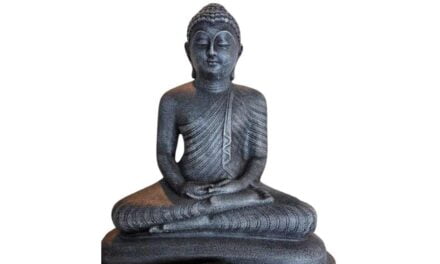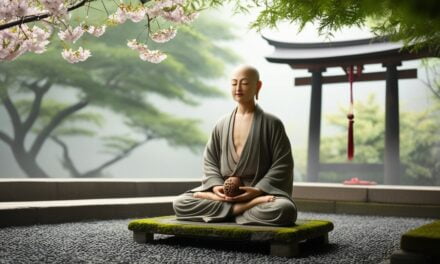Zen Buddhism, with its tranquil gardens, enigmatic koans, and austere black robes, often carries an aura of mystery and intrigue. Its emphasis on meditation, simplicity, and living in the present moment can evoke a sense of serenity and wisdom, attracting souls seeking a meaningful path in an increasingly chaotic world. Yet, the question lingers: Is Zen for everyone?
Demystifying Zen Practice:
Zen, originating in China and evolving in Japan, is a branch of Mahayana Buddhism. Its core principle lies in attaining enlightenment through direct insight, bypassing intellectualization and dogma. This is primarily achieved through zazen, a form of seated meditation emphasizing focused breathing and present-moment awareness.
However, Zen is not confined to the cushion. It permeates every aspect of life, transforming daily activities into opportunities for mindful practice. Washing dishes, tending a garden, or sipping tea become acts of mindful presence, dissolving the distinction between the mundane and the spiritual.
The uniqueness of the Zen Path:
Unlike some other Buddhist traditions, Zen shuns elaborate rituals and scriptures. Its teachings are often paradoxical and non-conceptual, challenging the limitations of the logical mind. Koans, enigmatic stories and questions, serve as tools to shatter intellectual constructs and guide practitioners towards intuitive understanding.
This unconventional approach can be both alluring and daunting. Zen demands a dedicated commitment to self-examination and introspective practice. It asks you to let go of preconceived notions, embrace uncomfortable realities, and confront your deepest fears and attachments. It’s a path of radical honesty and unwavering discipline – traits not everyone readily embraces.
Challenges and Considerations:
The Zen path is not without its challenges. The strictness of zazen practice can be physically demanding, and the relentless introspection can stir up unsettling emotions. The lack of clear-cut instructions and reliance on koans can feel frustrating for those seeking answers in concrete forms.
Furthermore, Zen, historically rooted in monastic communities, requires significant dedication and lifestyle adjustments for lay practitioners. Finding a qualified teacher and integrating Zen principles into daily life can be demanding, especially for those juggling busy schedules and family commitments.
Discovering Your Zen Fit:
So, is Zen for everyone? The answer, like life itself, is nuanced. While Zen offers profound wisdom and transformative potential, it’s not a one-size-fits-all solution. It resonates deeply with individuals who value introspection, non-conformity, and a direct approach to spiritual growth.
However, it’s crucial to acknowledge and respect its unique demands. Zen thrives on commitment, perseverance, and an openness to unconventional methods. If these qualities resonate with your inner compass, Zen could be a path to profound awakening and a life infused with present-moment awareness.
Beyond the Stereotypes:
It’s important to remember that Zen Buddhism is not a monolithic entity. Different schools within Zen offer variations in practice and emphasis. Zen can adapt to individual needs and lifestyles, finding expression in art, calligraphy, martial arts, and even gardening.
Ultimately, the decision to explore Zen is a personal one. Approaching it with an open mind, a willingness to learn, and a commitment to practice, regardless of its unconventional nature, can be the first step towards discovering if Zen holds a piece of your awakening journey.
Remember, whether you find solace in Zen’s austere beauty or discover alternative paths to peace and meaning, the core of all spiritual exploration lies in self-discovery and living authentically in the present moment. Let your soul guide you, explore diverse traditions, and embrace the unique path that resonates with your deepest aspirations.





